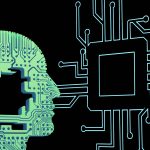In today’s digital age, the need for secure and accurate authentication methods has never been more crucial. Biometric authentication systems, which rely on unique biological characteristics to verify identities, are increasingly replacing traditional password-based systems. However, as sophisticated as biometric systems are, they still face challenges in precision and reliability. This is where Artificial Intelligence (AI) steps in. Leveraging AI can significantly enhance the accuracy and efficiency of biometric authentication systems, providing a more robust security solution. In this article, we’ll explore how you can harness AI to elevate the precision of biometric systems and ensure more secure authentication processes.
Understanding Biometric Authentication Systems
Biometric authentication systems identify individuals based on their unique physiological or behavioral traits. Common biometric modalities include fingerprints, facial recognition, iris scans, and voice recognition. These systems offer several advantages over traditional methods like passwords and PINs, primarily because biometric traits are difficult to forge or steal.
Also to see : What are the methods for optimizing AI-driven image processing applications?
However, the accuracy of these systems can be affected by various factors such as low-quality biometric data, environmental conditions, and even the physiological changes of individuals over time. This is where AI comes into play, offering advanced algorithms and machine learning models that can improve the precision of biometric authentication systems.
AI can analyze large datasets to identify patterns and anomalies, making it possible to refine biometric accuracy. By incorporating deep learning, AI can enhance image processing, pattern recognition, and predictive analytics, which are crucial for the effectiveness of biometric systems. This can lead to higher accuracy rates, lower false positives, and reduced instances of identity fraud.
Also to see : How can AI improve the accuracy of predictive maintenance in oil and gas industries?
Adopting AI in biometric systems is not merely a trend but a necessity for those looking to bolster security measures. As technology evolves, so do the threats against it. Therefore, it is essential to stay ahead by integrating AI into your biometric authentication frameworks.
How AI Enhances Biometric Accuracy
AI’s role in improving biometric authentication systems is multifaceted. It involves the use of machine learning algorithms, neural networks, and data analytics to process and analyze biometric data more effectively. This section delves into the specific ways AI can augment the precision of biometric systems.
Advanced Image Processing
One of the most critical aspects of biometric systems is the quality of the biometric data captured. AI-powered image processing techniques can significantly enhance the quality of images used in facial recognition and fingerprint scanning. Machine learning models can be trained to detect and correct poor-quality images, ensuring that the system captures high-resolution data.
For instance, AI can reduce noise in fingerprint scans, making the ridges and minutiae more distinguishable. In facial recognition, AI can adjust for various lighting conditions, angles, and expressions, ensuring that the facial data is as accurate as possible. These enhancements lead to better matching accuracy and fewer false rejections.
Pattern Recognition
Pattern recognition is another area where AI excels. Machine learning algorithms can analyze vast datasets to identify unique patterns in biometric data. These patterns are then used to train the system, enabling it to recognize individuals with greater precision.
In iris recognition, for example, AI can analyze the intricate patterns within the iris and distinguish even the most subtle differences. This level of detail is challenging to achieve with traditional algorithms. As a result, AI-driven systems can achieve higher accuracy rates and better differentiate between individuals.
Predictive Analytics
Predictive analytics powered by AI can further enhance the precision of biometric systems. By analyzing historical biometric data, AI can predict and adapt to changes in an individual’s biometric traits over time. This capability is particularly useful in voice recognition systems, where factors like age, health, and emotional state can affect voice patterns.
AI can also predict and mitigate potential security threats by analyzing patterns in authentication attempts. For instance, if the system detects an unusual number of failed authentication attempts from a specific location, it can flag it as a potential security risk. This proactive approach helps in preventing unauthorized access and bolsters overall security.
AI in Facial Recognition Systems
Facial recognition systems are among the most widely used biometric authentication methods today. These systems rely on capturing and analyzing facial features to verify an individual’s identity. However, factors like lighting, facial expressions, and even aging can affect the accuracy of facial recognition systems. AI offers several solutions to these challenges.
Improved Feature Extraction
AI algorithms can enhance the feature extraction process in facial recognition systems. Feature extraction involves identifying and analyzing key facial landmarks such as the eyes, nose, and mouth. AI can accurately detect these landmarks even under suboptimal conditions, such as low lighting or partial occlusion.
Machine learning models can also be trained to recognize changes in facial features over time. This capability ensures that the system remains accurate even as an individual’s appearance changes due to aging or other factors. By continuously updating the model with new data, AI can maintain high levels of accuracy.
Real-Time Processing
Real-time processing is another area where AI can significantly enhance facial recognition systems. Traditional facial recognition algorithms can be slow and computationally intensive, making them less suitable for applications requiring real-time authentication. AI, particularly deep learning models, can process and analyze facial data in real-time, enabling instant authentication.
This real-time capability is crucial in high-security environments like airports, where quick and accurate identification is essential. AI-powered facial recognition systems can scan and verify individuals in a matter of seconds, ensuring smooth and secure access control.
Fraud Detection
AI can also improve the fraud detection capabilities of facial recognition systems. By analyzing patterns in authentication attempts, AI can identify suspicious activities and flag potential frauds. For instance, if the system detects multiple failed authentication attempts using the same facial data, it can trigger an alert for further investigation.
Additionally, AI can recognize and mitigate spoofing attempts, where an unauthorized individual attempts to deceive the system using photos or videos of the legitimate user. AI-driven facial recognition systems can detect subtle differences between live faces and spoofing materials, ensuring higher security levels.
AI in Fingerprint Recognition Systems
Fingerprint recognition systems are another popular biometric authentication method. They rely on capturing and analyzing the unique patterns of ridges and minutiae on an individual’s fingertips. While fingerprint recognition is generally accurate, it can be affected by factors like dirt, moisture, and skin conditions. AI can address these challenges and enhance the precision of fingerprint recognition systems.
Enhanced Image Quality
AI-powered image processing techniques can improve the quality of fingerprint images. Machine learning algorithms can remove noise and enhance the clarity of ridge patterns, making it easier to distinguish unique features. This enhancement is particularly useful in scenarios where fingerprints are captured under less-than-ideal conditions, such as when fingers are dirty or wet.
Robust Matching Algorithms
AI can also improve the matching algorithms used in fingerprint recognition systems. Traditional matching algorithms may struggle with partial or distorted fingerprints. AI-driven models, however, can analyze and match even incomplete or imperfect fingerprint data. By training on large datasets, AI can learn to identify key features and make accurate matches, reducing the chances of false rejections and acceptances.
Adaptability
AI enables fingerprint recognition systems to adapt to changes in an individual’s fingerprints over time. Factors like age, skin conditions, and injuries can alter fingerprint patterns, affecting the system’s accuracy. AI can continuously update its models with new data, ensuring that it remains accurate despite these changes. This adaptability is crucial for maintaining high levels of precision in long-term applications.
Ethical Considerations and Future Prospects
While AI offers significant benefits for enhancing biometric authentication systems, it also raises several ethical considerations. Privacy concerns, data security, and potential biases in AI algorithms are critical issues that must be addressed.
Privacy and Data Security
The integration of AI into biometric systems involves the collection and analysis of vast amounts of personal data. Ensuring the privacy and security of this data is paramount. Organizations must implement robust data protection measures and comply with relevant regulations to safeguard user information. Transparency in data collection and usage practices is also essential to maintain user trust.
Addressing Bias
Bias in AI algorithms is another significant concern. If not properly addressed, biases can lead to unfair treatment and discrimination. For instance, facial recognition systems have been criticized for having higher error rates for certain demographic groups. To mitigate these issues, it is crucial to use diverse and representative datasets when training AI models. Regular audits and updates can help identify and rectify any biases in the system.
Future Prospects
The future of AI-powered biometric authentication systems looks promising. Advances in AI technologies, such as quantum computing and edge AI, are expected to further enhance the precision and efficiency of these systems. Quantum computing, with its ability to process vast amounts of data simultaneously, can significantly improve the speed and accuracy of biometric authentication. Edge AI, which involves processing data locally on devices rather than in centralized servers, can enhance real-time processing capabilities and reduce latency.
Moreover, the integration of multi-modal biometric systems, which combine multiple biometric modalities such as fingerprints, facial recognition, and voice recognition, can further improve accuracy and security. AI can efficiently process and analyze data from multiple sources, providing a more comprehensive and reliable authentication solution.
AI has the potential to revolutionize biometric authentication systems by significantly enhancing their precision and reliability. Through advanced image processing, pattern recognition, and predictive analytics, AI can address the challenges faced by traditional biometric systems and provide more accurate and secure authentication methods.
As technology continues to evolve, the integration of AI into biometric systems will become increasingly essential. However, it is crucial to address ethical considerations such as privacy, data security, and bias to ensure that these systems are fair, transparent, and trustworthy. By harnessing the power of AI, you can elevate the precision of your biometric authentication systems and stay ahead in the ever-evolving landscape of digital security.











